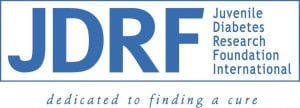 That energy drink or the next can of soda you drink may not seem like it’s doing that much harm, but people are getting an enormous amount of calories from drinks today. While mankind lived for thousands of years on water alone, we now have a huge array of tasty (and sometimes seemingly healthy) beverages available every day, from fruit juices to soda to cappuccinos, and they all have the potential to flood our bodies with an enormous number of excess calories.
That energy drink or the next can of soda you drink may not seem like it’s doing that much harm, but people are getting an enormous amount of calories from drinks today. While mankind lived for thousands of years on water alone, we now have a huge array of tasty (and sometimes seemingly healthy) beverages available every day, from fruit juices to soda to cappuccinos, and they all have the potential to flood our bodies with an enormous number of excess calories.
“It’s a huge problem,” says Katie Warwick, dietitian with the Toronto Western Hospital who works with patients who have received a recommendation for bariatric surgery. “A lot of our patients aren’t aware of how many calories they’re actually drinking. There’s the misperception that if it’s healthy, such as milk or juice, the calories don’t cause weight gain.” In other words, fruit juice may provide vitamin C and other important nutrients, but it also provides lots of energy in the form of calories, just as any other food does. And that extra energy can induce a caloric excess that causes your body to store fat.
Canadian beverage companies are beginning a two-year initiative that will emphasize the amount of calories contained in a drink right on the packaging. Similar companies in the U.S. have started a similar campaign.
Not only are we consuming more sugary and high-calorie drinks, but we’re consuming more of them in a single sitting. “For years the beverage industry considered 591-mL a multi-serve portion,” says Justin Sherwood, the president of the Canadian Beverage Association. “But our research shows that many consumers are now drinking it in one sitting.”
Data from Statistics Canada shows that middle-aged Canadian men in their 30s and 40s receive 16% of their daily caloric intake from liquids, while women receive 14.3% of their intake in liquids. In younger generations, it’s even higher: men in their 20s receive 20.4% of their calories from beverages and women 17.9%.
Those numbers are far out of line with what is considered healthy. According to Barry Popkin, a professor of nutrition at the University of North Carolina at Chapel Hill and leading obesity researcher, people should gain more like “between five and ten percent” of their daily calories from beverages.
It’s so easy to consume an excessive number of calories from beverages because they don’t activate the satiety mechanisms in our bodies the way solid foods do. The hormonal process from the gut signaling that we’re full is not fully realized when we consume calories in liquid form. Since we don’t feel full, we can consume hundreds of calories from a liquid and still feel like we need to eat some solid food.
According to Barry Popkin, “Our thirst mechanism developed separately from hunger so we could constantly drink water but eat only when food was available.” For thousands of years, mankind relied only on water; this evolutionary advantage has turned into a disadvantage as we have been exposed to tasty beverages that flood our bodies with extra calories.
Most of the offending beverages consist of simple sugars. These sugars move quickly through the gastrointestinal tract; they do not promote satiety or provide the fiber and fats that slow down digestion the way solid food does.
A recent study published in the New England Journal of Medicine found that the foods most responsible for contributing to the obesity problem include potatoes, potato chips, and high-sugar sweetened beverages.
 The Juvenile Diabetes Research Foundation (JDRF) recently announced on September 14 that it is sponsoring a $100,000 Challenge, calling for the development of new methods for discovering and creating a glucose-responsive
The Juvenile Diabetes Research Foundation (JDRF) recently announced on September 14 that it is sponsoring a $100,000 Challenge, calling for the development of new methods for discovering and creating a glucose-responsive  Josefina Hernandez didn’t think that eating a bag of chips to prevent her blood sugar from dropping would be cause for getting fired. But Hernandez, who worked at a Walgreens in San Francisco, found her employment terminated when she did just that.
Josefina Hernandez didn’t think that eating a bag of chips to prevent her blood sugar from dropping would be cause for getting fired. But Hernandez, who worked at a Walgreens in San Francisco, found her employment terminated when she did just that. Dr. Neal Barnard, president of the Physicians Committee for Responsible Medicine (PCRM) and author of “The 21-Day Weight Loss Kickstart,” believes that many of our modern-day problems such as obesity and diabetes can be traced to the high concentration of animal products and dietary
Dr. Neal Barnard, president of the Physicians Committee for Responsible Medicine (PCRM) and author of “The 21-Day Weight Loss Kickstart,” believes that many of our modern-day problems such as obesity and diabetes can be traced to the high concentration of animal products and dietary  Amylin Pharmaceuticals, a biopharmaceutical company based in San Diego, CA, recently announced the results of clinical trials of its new
Amylin Pharmaceuticals, a biopharmaceutical company based in San Diego, CA, recently announced the results of clinical trials of its new  New research shows that there may be a good reason why you should chew your food thoroughly. According Masaaki Eto, M.D., a professor of clinical pharmacology and medicine with Ohu University in Koriyama, Japan, thoroughly chewing food stimulates the release of two intestinal peptides that serve a function in lowering appetite and reducing food intake in obese individuals. Dr. Eto presented the findings of the research at the 47th annual meeting of the European Association for the Study of Diabetes (EASD).
New research shows that there may be a good reason why you should chew your food thoroughly. According Masaaki Eto, M.D., a professor of clinical pharmacology and medicine with Ohu University in Koriyama, Japan, thoroughly chewing food stimulates the release of two intestinal peptides that serve a function in lowering appetite and reducing food intake in obese individuals. Dr. Eto presented the findings of the research at the 47th annual meeting of the European Association for the Study of Diabetes (EASD). Timesulin, a new product for use in managing insulin-dependent diabetes was debuted at the 16th annual meeting of the Foundation of European Nurses in Diabetes, or FEND, in Lisbon, Spain. The product uses a timer to remind diabetics when it’s time for another
Timesulin, a new product for use in managing insulin-dependent diabetes was debuted at the 16th annual meeting of the Foundation of European Nurses in Diabetes, or FEND, in Lisbon, Spain. The product uses a timer to remind diabetics when it’s time for another  Team Type 1, an international sports organization promoting diabetes awareness around the world, announced recently that ten runners from the organization’s world-class athletic program will be embarking on a 3,000 mile run across the United States. Supported by international pharmaceutical company SANOFI, which sponsors Team Type 1’s racing teams — which are composed of over 100 athletes — the run is designed to promote a message of improved health through proper diabetes management methods, through increasing awareness of the growing problem of diabetes in the U.S., and through the
Team Type 1, an international sports organization promoting diabetes awareness around the world, announced recently that ten runners from the organization’s world-class athletic program will be embarking on a 3,000 mile run across the United States. Supported by international pharmaceutical company SANOFI, which sponsors Team Type 1’s racing teams — which are composed of over 100 athletes — the run is designed to promote a message of improved health through proper diabetes management methods, through increasing awareness of the growing problem of diabetes in the U.S., and through the  The International Diabetes Federation recently released new estimates about the number of people affected by diabetes. According to the IDF, there are 366 million people around the world living with diabetes; the disease also kills one person every seven seconds. The IDF stated that the immense pressures that diabetes places on healthcare systems should encourage world leaders to take a more active role in treating and preventing the disease.
The International Diabetes Federation recently released new estimates about the number of people affected by diabetes. According to the IDF, there are 366 million people around the world living with diabetes; the disease also kills one person every seven seconds. The IDF stated that the immense pressures that diabetes places on healthcare systems should encourage world leaders to take a more active role in treating and preventing the disease.